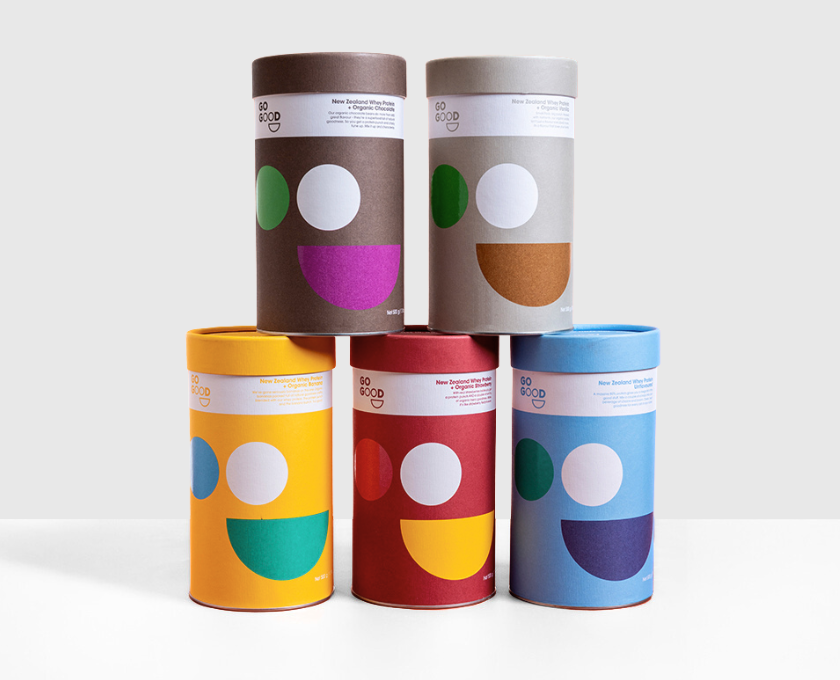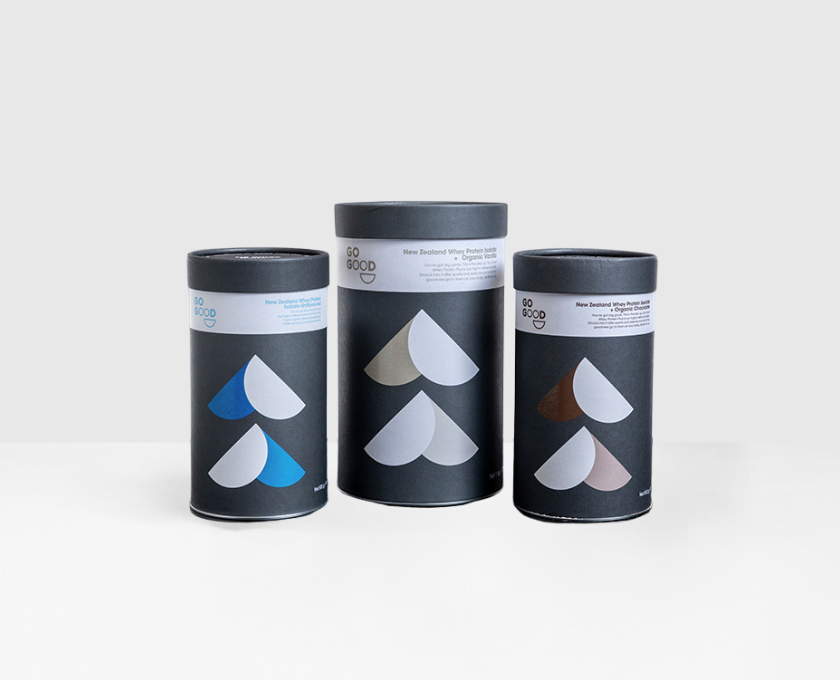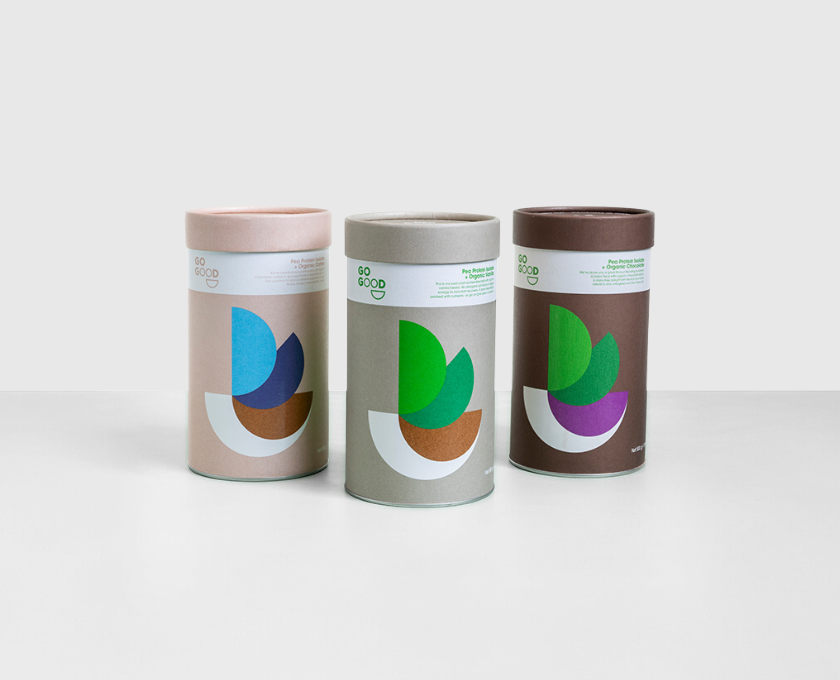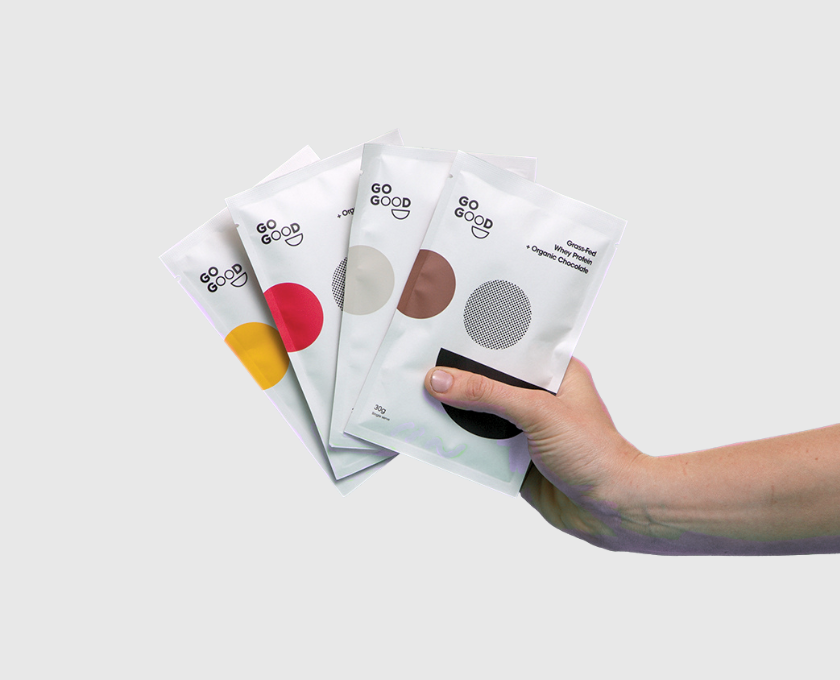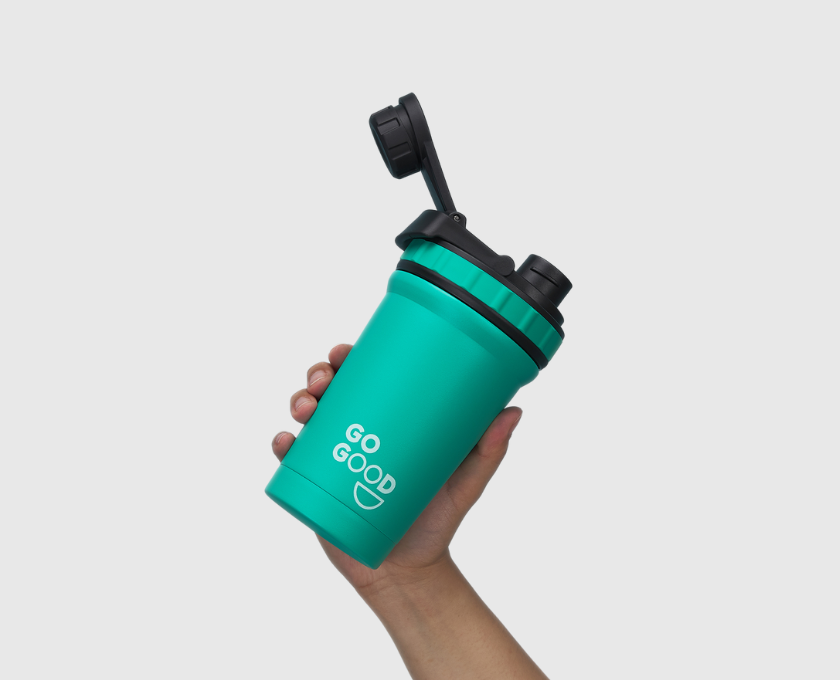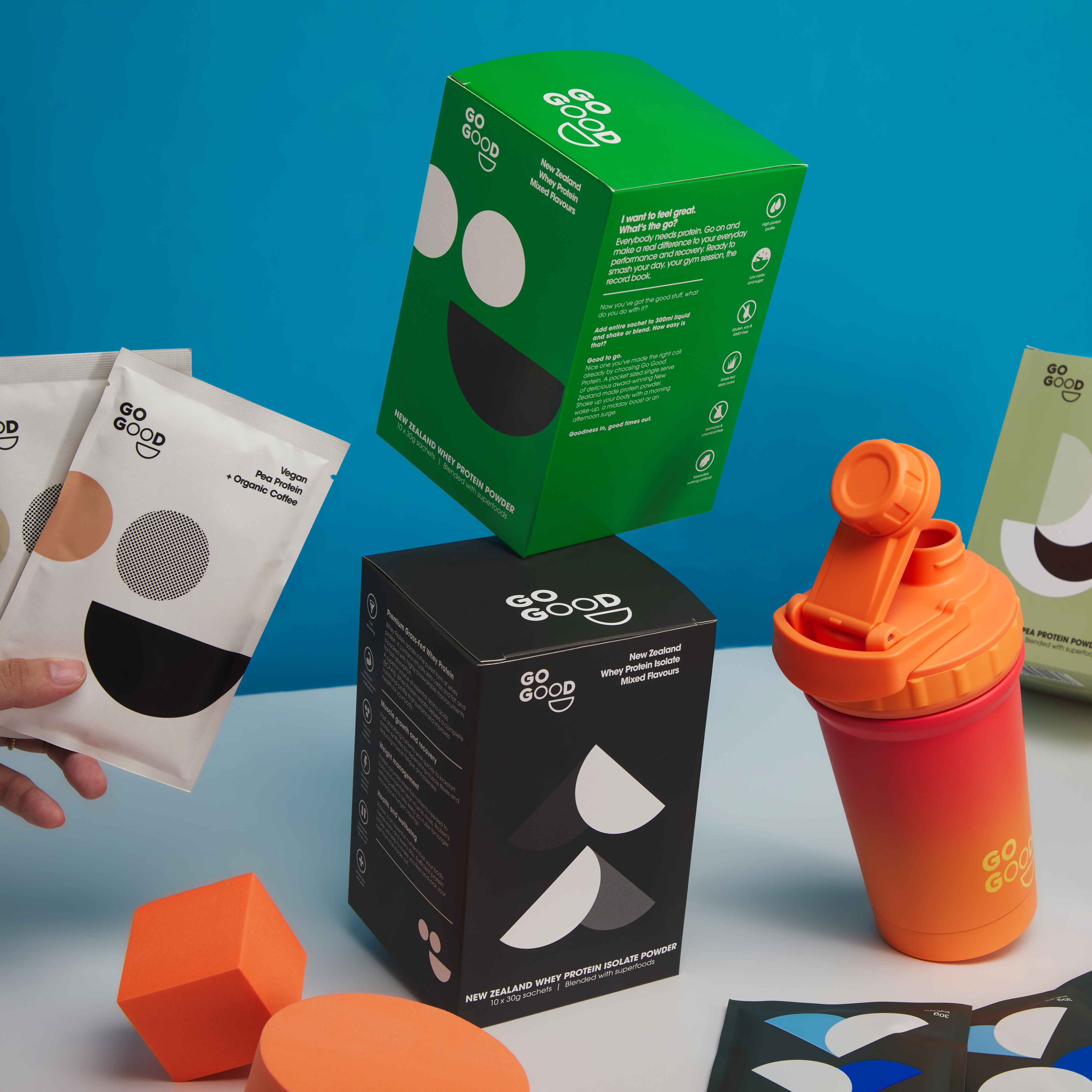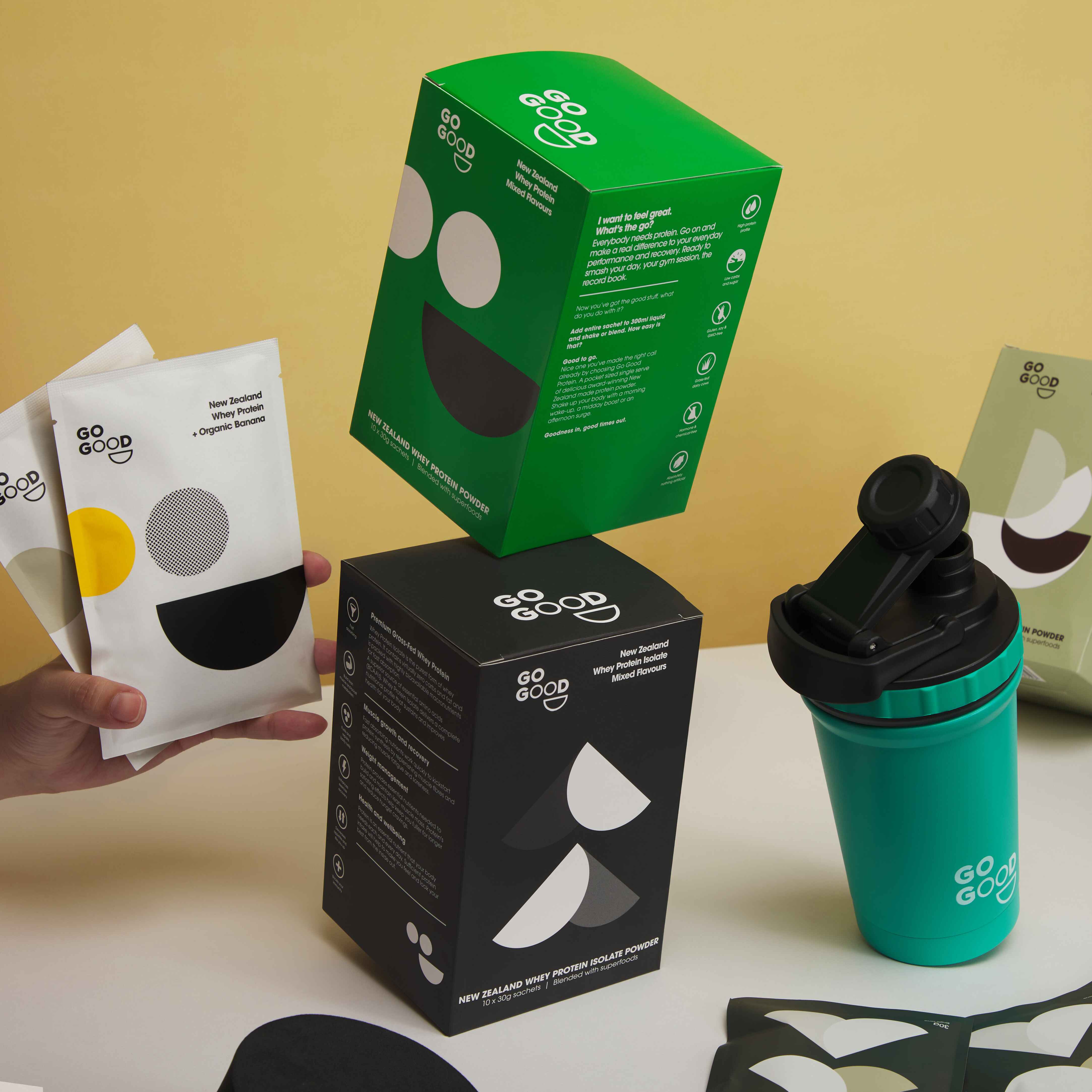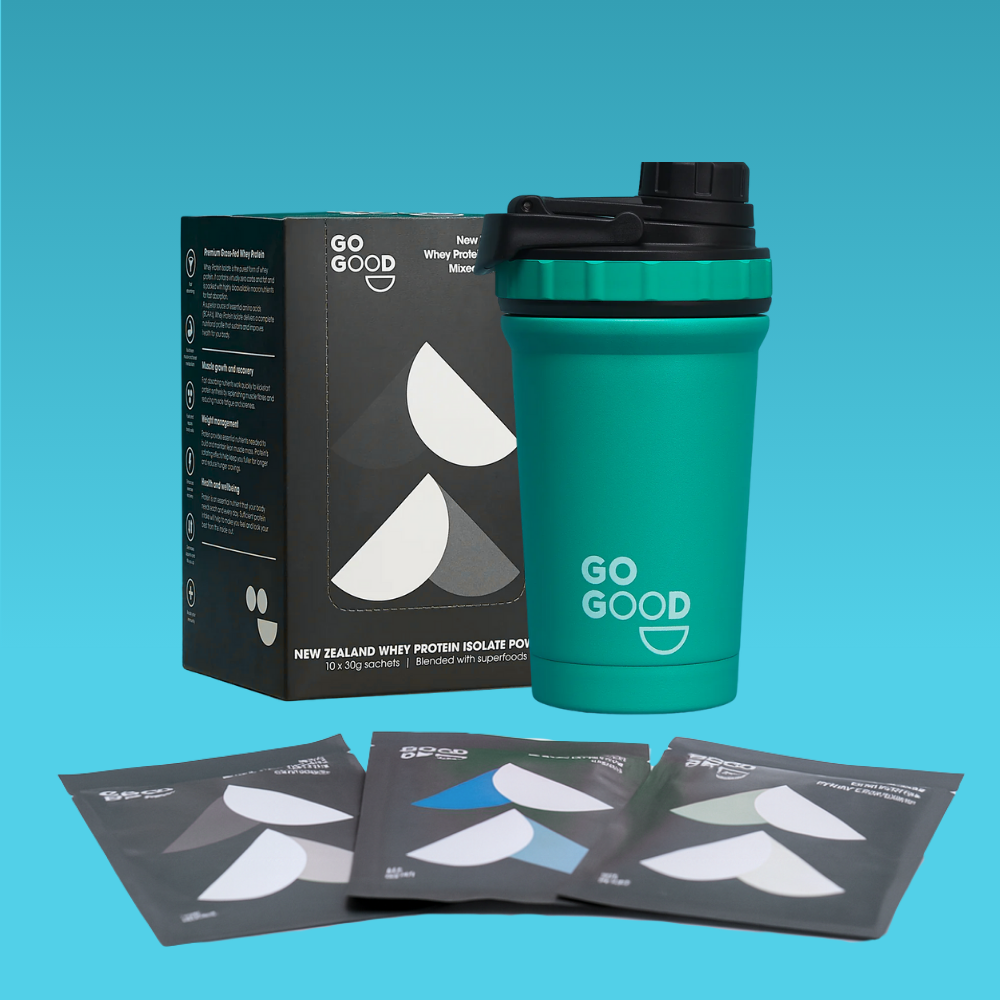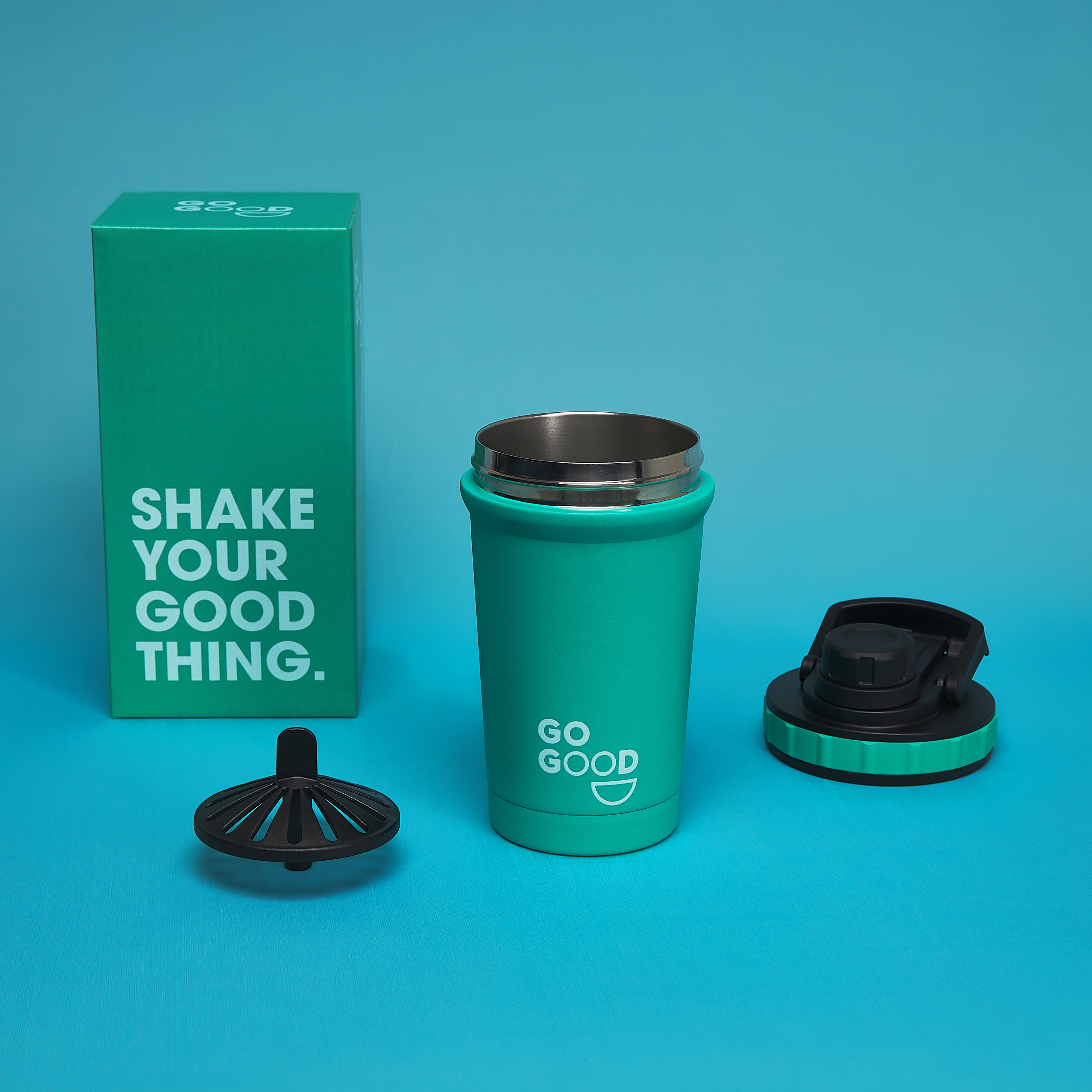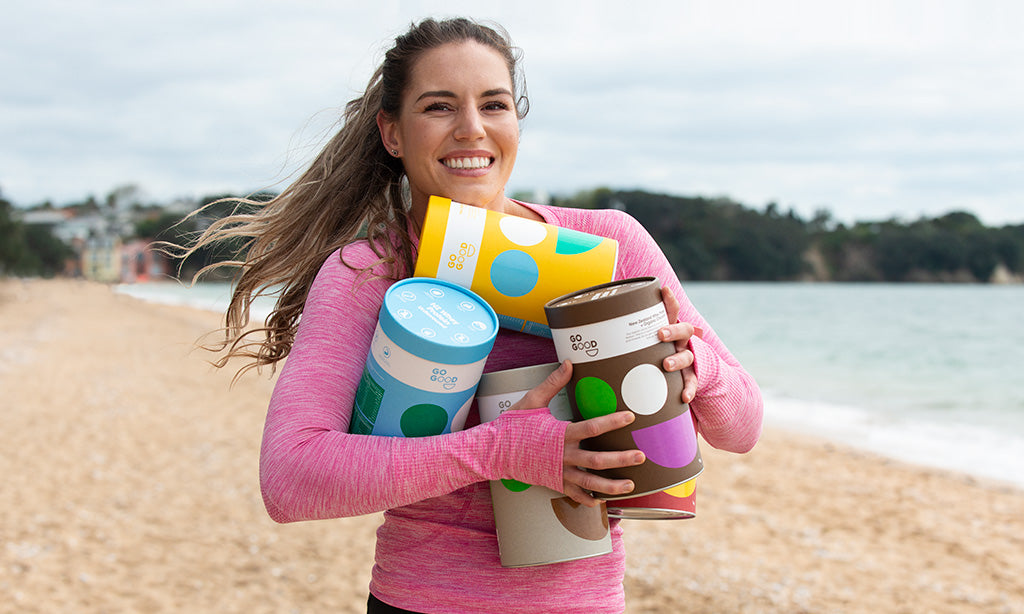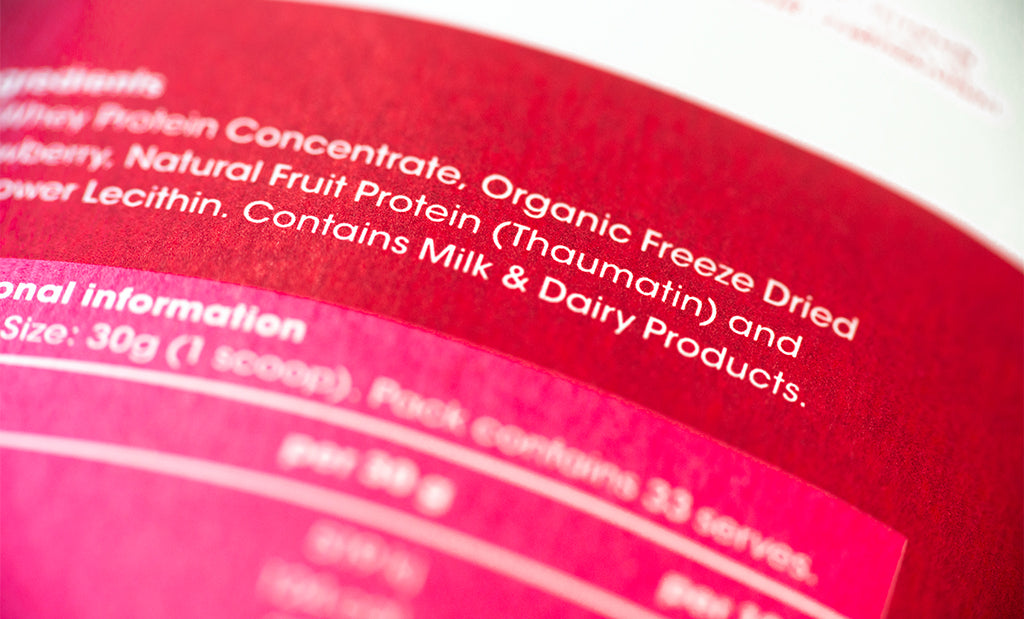With carbohydrates and fat, Protein is one of the three an essential nutrients your body needs each and every day to operate properly but that your body cannot produce on its own. An active person needs, through food and drink, to ingest around 1.2 to 1.5g of protein per kilogram of body weight daily.
Protein can be found in an abundance of whole foods from the animal and vegetal realms, and you can find protein powders derived from many different sources. Let’s have a look at some of the most common types of protein powders you are likely to come across.
WHEY PROTEIN POWDER
Whey protein is an animal-based complete protein powder. Whey is the liquid remaining after the curd from milk has been strained. It is the easiest and fastest absorbing protein and has the highest concentration of protein per scoop (30g serving) compared to other types of protein. It tastes great, dissolves well and is affordable. Whey protein as a post-workout supplement is fast absorbing and easy to digest, aiding in muscle recovery and growth.
WHEY PROTEIN CONCENTRATE (WPC)
Whey protein concentrates generally contain 70%- 85% of protein. Among all protein types, concentrates are the cheapest per gram. However, compared to protein isolates and hydrolysates, concentrated protein powder contains the most fat, carbohydrates and lactose. People who are lactose-sensitive may want to explore other options. This is the most economical and best-selling type of protein powder.
WHEY PROTEIN ISOLATE (WPI)
Whey protein isolates contain 85- 90%+ pure protein. The protein undergoes an extra filtration process to remove virtually all fats. Whey isolate is essentially fat-free which may be particularly attractive to those eliminating unnecessary fat consumption in their diets and for weight loss. Compared to concentrates, it has the lowest carbohydrate content and almost zero lactose, making it suitable for those who are lactose-intolerant. WPIs is a more refined form of whey protein powder which is performance orientated.
WHEY PROTEIN HYDROLYSATE
Whey protein hydrolysate is the purest and most refined type of protein. In protein hydrolysates, heat, acid or enzymes are used to further break down amino acid bonds. This pre-digestion stage enables this type of protein to be more rapidly absorbed by the gut compared to whey protein isolates or concentrates. Whey protein hydrolysates would suit those who are lactose intolerant and serious about muscle gains. Whey protein hydrolysates are known for their bioactivity and functionality, but WPHs also have a distinctly bitter taste that seriously hurt their popularity.
OTHER ANIMAL-BASED PROTEIN POWDERS
CASEIN
Casein is less popular than whey protein as a post-workout protein supplement. Compared to whey, it is slower to digest and to be absorbed by the body so it keeps you full longer. 80% of protein in milk is made out of casein protein which is extracted from milk and processed into a powder form. Casein is used to preserve muscle mass in between workouts or overnight when the body is fasting and prone to muscle breakdown. Casein is also high in glutamine, a critical amino acid for a healthy immune system, intestinal health and muscle building. As it is derived from dairy, it is not suitable for those who are lactose intolerant or vegans.
EGG PROTEIN
Egg (white) protein used to be the most popular form of protein before whey protein made it big in the market due to its better taste and affordability. Egg whites were especially popular among 80s bodybuilders due to their high essential amino acid to non-essential amino acid ratio. Similar to milk protein, egg white is extremely low in fat and carbohydrates. Egg white protein is also cholesterol-free and ideal for those who are lactose intolerant. Egg protein powder is also rich in vitamins and minerals compared to other types of protein powder. Those with egg allergies should avoid this type of protein. It is also the most expensive protein supplement in the market.
PLANT-BASED PROTEIN POWDER
PEA PROTEIN
Pea Protein is made from dried, ground yellow peas and is hypoallergenic, gluten and lactose-free and easy to digest. It is the perfect choice for vegans and is also safe for people with food sensitivities and allergies. Pea protein (in its highly concentrated form) contains all the essential amino acids especially leucine, isoleucine and valine. A study showed that pea protein supplementation led to greater muscle growth than whey protein when combined with strength training. More muscle mass boosts metabolism, therefore, aiding in weight loss. Pea powder is also reported to be more satiating than whey protein due to its thicker consistency.
SOY PROTEIN
Soy protein is a plant-based protein containing all the 9 essential amino acids. Several studies have identified that soy protein performs similarly to whey protein in stimulating muscle growth after a vigorous resistance training workout. Other research has identified that isoflavones in soy reduce the risk of cardiovascular illnesses and cancer. Soy protein is ideal for vegans or those who are lactose-intolerant but should not be consumed in addition to an already soy protein-rich diet. If soy is consumed in excess, the isoflavones can potentially throw hormone (estrogen) levels out of balance in women and reduce testosterone levels in men - for this reason, other protein sources are preferred.
HEMP PROTEIN
Hemp protein, a plant-based protein contains all 9 essential amino acids. Hemp seeds are high in omega-3 and 6 fatty acids, magnesium, potassium, fibre and iron. Like pea protein, hemp protein is highly digestible and suitable for those with GI-tract sensitivities. Unfortunately, it delivers only 14 grams of protein with more calories per 28-gram serving size compared to other types of protein. This may not be ideal for those who are targeting weight loss. It is also one of the most expensive proteins in the market.
BROWN RICE PROTEIN
Brown rice protein provides a reasonable amount of protein and is gluten-free. However, it is usually combined with vegan protein blends to help vegans or those on a dairy-free diet get all the essential amino acids. Relying on rice protein powder as your only source of protein is not ideal as it lacks an essential amino acid--- lysine. It is, therefore, an incomplete protein source and generally only seen when blended with other protein sources to complement the nutritional profile.
QUALITY, CONVENIENCE AND TASTE
So there you go. There are protein powder options for everybody. Whether you’re simple health conscious, an athlete, or a bodybuilder; vegetarian or vegan, even if you suffer from certain allergies, you should be able to find a blend to increase your protein intake and, and that fit your lifestyle.
What makes protein powders so convenient is their density of the protein nutrient, which is exceptional. If you would need to consume 4 eggs, or 3 broccoli or 1 chicken breast to get the same amount of protein we get in just 1 scoop of protein powder.
At Go Good, we have opted for a range of whey protein powders and pea protein powders. All our protein blends have a very high protein profile. They are 80% to 90% protein (24-27g per scoop), with a complete amino acid profile and are rich in BCAAs. We believe they are the best options in terms of combined quality, bio-availability, price and taste.
FEATURED PRODUCT
Organic Chocolate Whey Protein Powder
- Rich in antioxidants and essential amino acids
- Fills you up and decrease appetite
- Boost your immunity and help build lean muscle


